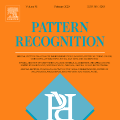Foundation Models (FMs) have become essential components in modern software systems, excelling in tasks such as pattern recognition and unstructured data processing. However, their capabilities are complemented by the precision, verifiability, and deterministic nature of executable specifications, such as symbolic programs. This paper explores a new perspective on computation offloading, proposing a framework that strategically distributes computational tasks between FMs and executable specifications based on their respective strengths. We discuss the potential design of an infrastructure software framework to enable this offloading, focusing on key mechanisms such as task decomposition, resource allocation, and adaptive optimization. Furthermore, we identify critical technical challenges, including semantic-gap resolution, reliability, and scalability, that must be addressed to realize this approach. By leveraging the complementary strengths of FMs and symbolic programs, this perspective lays the groundwork for advancing hybrid software systems that are both efficient and reliable.
翻译:暂无翻译




